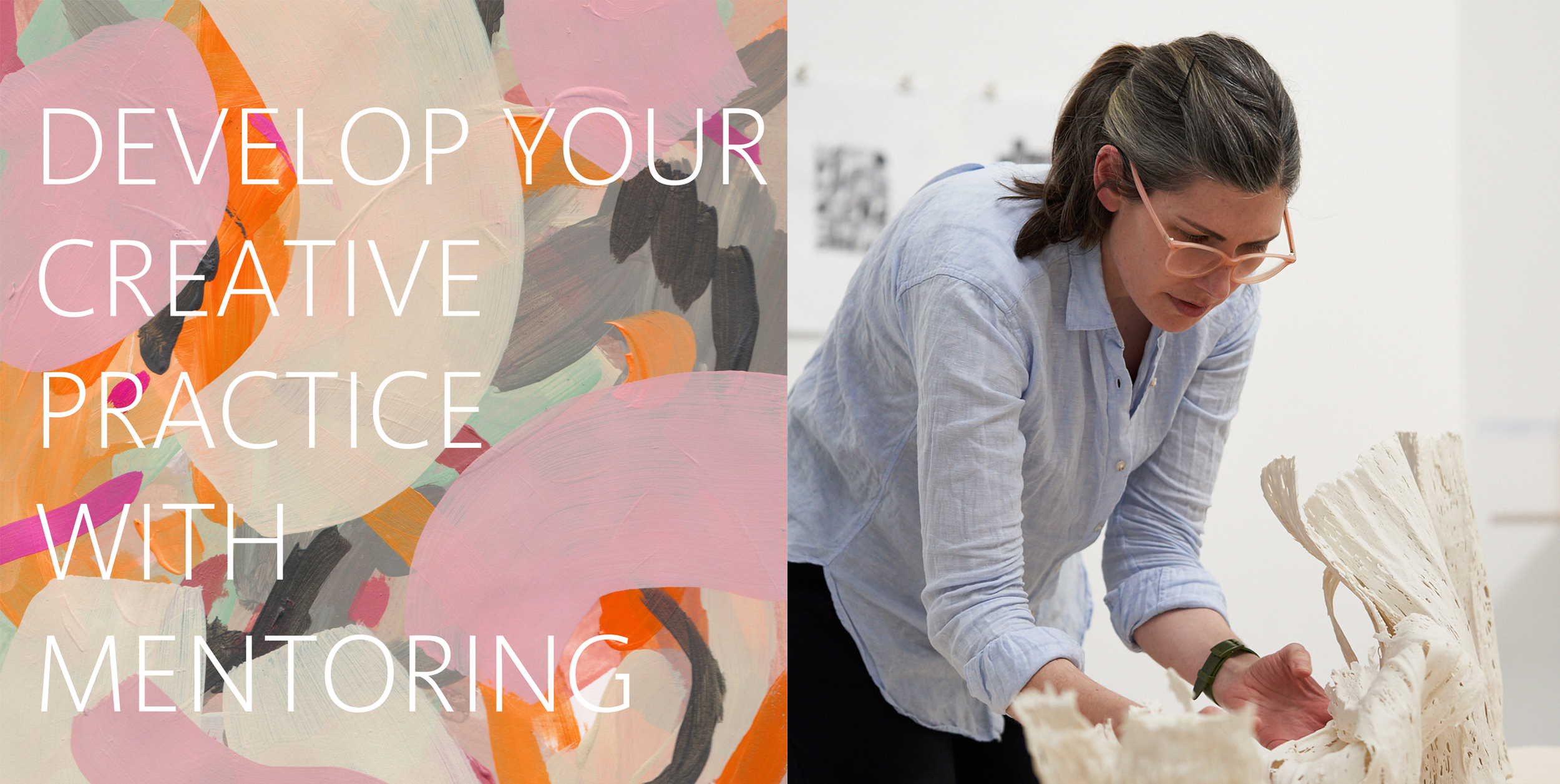How do you describe what you do?
The 1:1 work I do focuses on the intangible side of a creative practice. I offer an undefined space for you to reflect, explore and understand your unique creative process.
What would you say is your style or approach?
I like to say that this work treads lightly between coaching and mentoring, taking aspects and approaches from both. It is client-focused, always responding to the needs of the person I’m working with. It’s holistic, rooted in the knowledge that your creative practice is situated within the context of your life and should be working to support your values, needs and priorities.
What sort of clients do you enjoy working with?
I support people whose professional work is an essential expression of who they are, or who they want to be, in the world. People who feel drawn to working intentionally and with purpose.
I also feel a strong affinity for people whose practice might occupy a space between craft and art, regardless of material discipline.
I love working with people who are curious to explore their creative practice in greater depth – in many ways we are archaeologists of creativity, uncovering and building up the narrative of the work and their role within that.
Are there any particular issues/topics/themes that you specialise in?
There are a couple of central themes in my work. The first is The Why behind the Work – exploring and discovering the motivations behind someone’s creative practice to draw out their values, purpose and unique approach. This awareness of how a practice operates, how we feel within that, enables us to navigate significant shifts in an intentional and grounded way.
The second theme is sustainability – internal and external. How can we create practices that support us in the lives we want to lead, that are manageable, maintainable and that sustain us creatively? And also, how can we acknowledge the responsibility of creating objects that go out into the world, how can we operate ethically and mindful of how our work impacts other people and the planet?
So for example, within this we could be investigating how to come back to a making practice after a break, possibly due to illness or child care, so that the practice honours the new needs and priorities the client may have. Or we could be considering how to reconcile the reality of making more ‘stuff’ with the innate artistic drive to create.
How does your background, your artistic practice or your previous career etc affect/influence how you work?
At times my career has felt non-linear. From my training as an archaeologist, and then working as a museum Education Officer, to becoming a maker myself. And then as I stopped making, working to support other makers’ creative careers. But throughout everything there’s been a love of enquiry and of objects – a deep passion for connecting with people through objects and in communicating about the stories objects tell us.
What motivates you to do this work? What do you love about it?
I think a lot of my motivation for this work comes from my own experiences as a maker looking for support with the more intangible aspects of my practice and finding it hard. I know how challenging it can be if the context for your work isn’t obvious, or if you are trying to develop a career that varies from the conventional craft model. My own making career ended before it had really begun and I don’t want to see any other makers in the same position.
What I love about this work is that I get to be a companion to people on their journeys of discovery, I get to witness their revelations and share in the joy of making sense of things. It feels like such a privilege and it also satisfies that deeply nosey part of me that just loves to learn more about everything!
What else would you like people to know about you/working with you?
It feels like there can be a tendency in coaching/mentoring to focus on issues or problems. I don’t see it like that. You’re not something to be fixed. The work I invite people to do is about awareness and understanding, so that the full extent and potential of your practice is revealed to you. And that can happen at any time, at any point in your practice, not only in the struggle.
